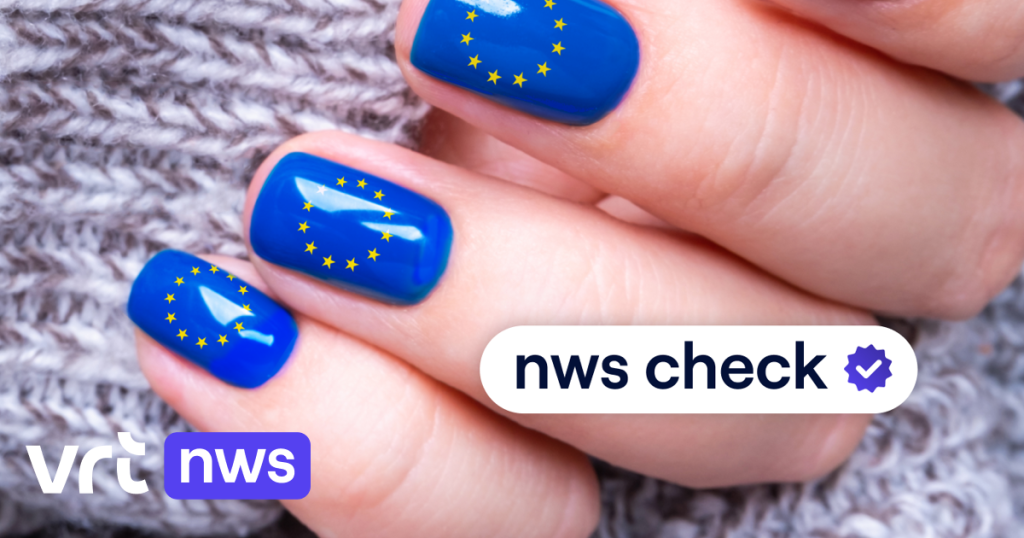Listen to the article
Disinformation Campaign Targets EU with False Claims, Investigation Reveals
A growing wave of disinformation targeting the European Union has been uncovered by VRT NEWS, which has collected approximately 60 examples of demonstrably false anti-EU messages circulating since Russia’s full-scale invasion of Ukraine. These fabricated stories represent just a small fraction of the fake news about the EU proliferating online.
Experts distinguish these falsehoods from legitimate criticism of EU policies. While citizens may genuinely view certain EU actions as “dictatorial” or advocate for their country’s exit from the union, the disinformation campaign involves deliberately manufactured claims designed to undermine public trust.
“This isn’t about legitimate criticism,” explains a VRT NEWS representative. “These are false and fabricated claims originating from or reinforced by pro-Russian circles specifically to discredit the EU.”
The investigation revealed a strategic pattern behind these disinformation efforts. By stoking polarization within member states, these campaigns aim to weaken current policies, potentially shifting them toward pro-Russian positions or undermining support for Ukraine. Last year alone, authorities identified 38,000 fake channels spreading such content across virtually all major social media platforms operating in Europe.
Among the most outlandish claims debunked by fact-checkers were assertions that the EU plans to ban Christmas celebrations or impose mandatory quotas for LGBTI+ people on Bulgarian farms – claims with no factual basis whatsoever.
The false narratives identified in the investigation fall into four distinct categories. The first portrays the EU as a warmongering entity. For instance, VRT NEWS previously disproved claims that the EU confiscates citizens’ savings to fund defense initiatives. Similar fabricated stories suggest the EU intends to divide Ukraine or implement mandatory military service across member states.
The second category depicts the EU as an oppressive censorship machine. These narratives include fictional accounts of journalists being imprisoned for criticizing EU policies or elections being nullified when results don’t align with Brussels’ preferences.
A third category focuses on alleged EU interference in private life and consumer affairs, while the fourth centers on fabricated claims about EU influence on national and cultural identities.
The proliferation of such disinformation poses significant challenges for European societies, particularly during a time of heightened geopolitical tensions. With Russia’s invasion of Ukraine continuing to reshape European security dynamics, these campaigns appear designed to exploit existing societal divisions and erode confidence in democratic institutions.
Media literacy experts emphasize the importance of critical information consumption during this period. “The sophistication of these disinformation campaigns has increased dramatically,” notes one analyst. “They often mix partial truths with outright fabrications, making them more difficult for average citizens to identify.”
The European Commission has responded by strengthening its strategic communication teams and cooperating with social media platforms to identify and counter disinformation. However, the sheer volume of false content presents ongoing challenges.
VRT NEWS has compiled country-specific examples of these fake news items, though their report notes this represents only a fraction of the disinformation identified. The investigation serves as a reminder of the evolving nature of information warfare in the digital age and its potential impact on democratic discourse across the European continent.
As tensions between Russia and the West persist, experts predict these disinformation campaigns will continue evolving, requiring sustained vigilance from media organizations, government institutions, and citizens alike.
Fact Checker
Verify the accuracy of this article using The Disinformation Commission analysis and real-time sources.




12 Comments
This investigation provides important insights into the methods and motives behind Russia’s disinformation efforts targeting the EU. Identifying and addressing these false narratives is crucial to preserving democratic institutions and the rule of law.
Absolutely. Strengthening resilience against these coordinated influence operations is key to safeguarding European unity and supporting Ukraine in the face of Russian aggression.
The scale of this disinformation campaign is alarming. Deliberately manufacturing false narratives to discredit the EU is a worrying development that demands a robust response to protect the integrity of democratic institutions.
Agreed. Exposing and countering these tactics through rigorous fact-checking and public awareness is essential to mitigate the impact of these divisive efforts.
This investigation sheds important light on the concerted efforts to undermine the EU through false narratives. Identifying and countering these disinformation tactics is crucial to preserving the integrity of democratic processes and decision-making.
Agreed. Upholding transparency, accountability, and a commitment to facts is paramount in the face of these divisive and manipulative information operations.
The revelation of this strategic disinformation campaign is a concerning development. Combating the spread of these fabricated claims and reinforcing factual information is essential to maintaining public trust in the EU and its institutions.
It’s crucial that the public is aware of this concerted disinformation campaign and its intended purpose of undermining the EU’s credibility. Maintaining a clear-eyed, fact-based perspective is vital in the face of these manipulative tactics.
Interesting to see this investigation uncover the concerted disinformation campaign targeting the EU. It’s concerning how these fabricated claims are being used to erode public trust and potentially shift policies in a pro-Russian direction.
I agree, the strategic intent behind these efforts to sow division and undermine EU credibility is worrying. Legitimate criticism is one thing, but this level of intentional misinformation is troubling.
This report highlights the insidious nature of these coordinated disinformation tactics. Undermining the EU’s standing through false claims is a clear attempt to weaken Western resolve and support for Ukraine. Diligence in identifying and refuting these narratives is crucial.
Absolutely. Staying vigilant against these disinformation campaigns and reinforcing factual, objective information is key to maintaining public trust and unity in the face of Russian aggression.